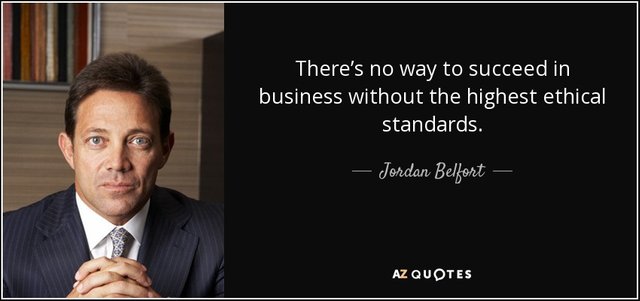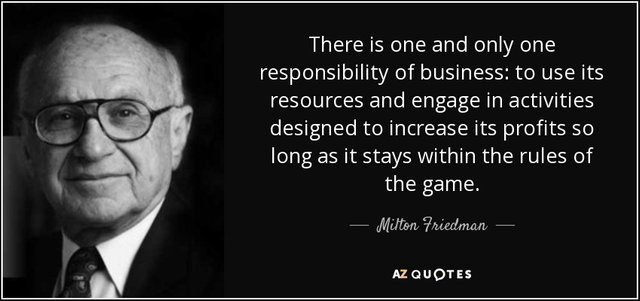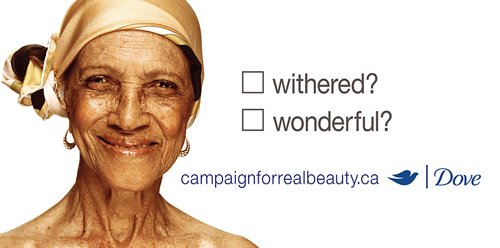Consumer Behaviour and Ethical Advertising - The impact of gender Pt. 1
Since the dawn of humanity, mankind has always held an interest in ethics. Whether it’s Adam eating the forbidden fruit in the Garden of Eden, or Ma’at, the ancient Egyptian goddess of justice and truth; humanity has relentlessly toiled to develop an understanding of right and wrong. Ethical theorists have been obsessed with developing a definition of the term; however, like any topic with a range of voices and perspectives, this has caused countless theorists to postulate many different definitions. Runes (1964) posited that “ethical behaviour refers to ‘just’ or ‘right’ standards of behaviour between parties in a situation.” Correspondingly, Barry (1979) suggested the definition of “the study of what constitutes good and bad human conduct, including related actions and values.” This paper favours the definition posited by Taylor (1975, p. 1), that ethics are an “inquiry into the nature and grounds of morality”, where he defines morality as being “moral judgements, standards, and rules of conduct.”

However, these definitions consider ethics as a broader concept than may be useful for a business context. Bartels (1967) posits the simplified conception that business ethics is the “standard by which business actions can be judged as right or wrong”. Although, issues of ethics and morality are rarely this simple. American academic Kenneth Andrews once said "if it's black and white, and a man has normal courage and security, he'll say no. It's in the grey areas that the businessman may more likely flounder." In a business context, these grey areas usually exist where ethical ideologies interfere with the prime goal of business activity, profit maximisation. Consequently, deciding which actions are ‘right’ or ‘wrong’, a difficult task in any setting, is compounded when business activity is involved.
The academic focus on business ethics as a field of research began in the 1920s. Since then, the literature on the topic has grown exponentially, both in terms of depth, and range of focus. However, it was not until the tail-end of the 20th century, when the population developed an awareness of the wider impacts of business practices, ethical business behaviour entered the forefront of society’s attention (Dubinsky and Loken, 1989). Consequently, researchers witnessed the emergence of an extremely motivated group of ‘ethical’ consumers in the 1990’s (Shaw and Clarke, 1999). As this generation of consumers aged they shaped the world; not only did their response to ethical business action encourage conformity, but they influenced future generations to place greater importance on ethical business conduct.

This seems a little ironic!
When considering business activity through an ethical lens, it becomes clear that marketing is the functional area with the greatest proximity to situations of ethical abuse; largely resulting from it being the function charged with communicating ideologies and perceptions of value, satisfaction and behaviour (Tsalikis and Fritzsche, 1989). For a definition of ethics in marketing Vitell (1986), adapted the aforementioned definition posited by Taylor, to arrive at “an inquiry into the nature and grounds of moral judgements, standards, and rules of conduct relating to marketing decisions and marketing situations.” One aspect of marketing activity is advertising, which can be defined as a means of communication designed to inform or persuade a customer, the effect of which is to encourage purchase. According to Crane and Matten (2010), ethical issues in advertising can arise due to issues such the perpetuation of social stereotypes, the creation of artificial wants in line with consumerism and materialism, or deception of consumers. This study will, therefore, explore the relationship between ethical advertising and purchase intentions with reference to the role of gender.
Through the decades, the role of ethical business behaviour has changed drastically. Whereas business activity was once viewed as a mere economical process, the overwhelming contemporary view is that business activity is as much, if not more, a social process as economic. Whilst many scholars and theorists alike championed ethical business behaviour in the 20th Century, the majority of business practices were targeted at maximising shareholders returns (Elkington, 1998). Renowned economist Milton Friedman (1970) claimed that “there is one and only one social responsibility of a business; to use its resources and engage in activities designed to increase its profits so long as it stays within the rules of the game, which is to say, engages in open and free competition without deception or fraud." Consequently, the zeitgeist for this era was that the role of business was to maximise profits, and the burden of ensuring social stability was one for the government to bear (Tsoutsoura, 2004). The expectation was for a business to minimise any detrimental effect it had on society, rather than to improve upon society.

Nevertheless, as with many controversial issues, society’s stance on ethical, or rather unethical, business behaviour began to change in the years leading up to the turn of the millennia. Ethically conscious consumers began to utilise their purchase power to pressure companies into considering the consequences of their actions outside of an economic context. However, this phenomenon did not relieve businesses of all of their ability to maximise profits. Promoting ethical business practices, often referred to as corporate social responsibility (CSR), can result in greater exposure to new customers, and even greater profits (Moosemayer and Fuljahn, 2010; Bhattacharya, 2016; Du and Sen, 2016). This is not just an academic viewpoint either; recent surveys suggest that CEO’s believe that strong social performance can result in improved competitiveness and success of a company (Accenture, 2013). In fact, Richard Reed, a co-founder of Innocent Drinks, claims that his basic business principle is “to leave things better that we find them” (Graham, 2011). Therefore, a focus on business ethics, and the promotion thereof, can combine social and economic stability, with profit maximisation.
Research has shown that companies that are perceived as unethical are less profitable (Davis, 1994). Consequently, there is a strong case in support of businesses adopting ethical advertising practices; regardless of whether the focus is environmental, social, commercial (Nyilasy, et al, 2014). As an example, in 2004 Dove released their ‘Real Beauty’ advertising campaign, which forewent celebrities and models, instead the campaign chose to focus on promoting the beauty found in everyday women. Sales for products featured in this campaign grew 600% in the first 2 months (Cone and Darigan, 2007).

Based on a completed literature review presented in the following section, the contemporary literature contains a research gap regarding the impact of ethical advertising on the purchase intentions of consumers of different genders. Ethical consumerism is on the rise amongst UK consumers, with only 28% of consumers reporting that they make no ethical considerations when shopping (Mintel, 2015). This figure is only expected to drop as market trends suggest that consumers are now taking it upon themselves to find new ways to reduce waste as an environmental solution (Mintel, 2017). Whilst, numerous studies have been conducted to ascertain the existence of a differential between gender and purchasing of ethical goods (Chatzidakis and Mitussis, 2007; Valentine and Rittenburg, 2007; Vermeir and Kenhove, 2008); little has been done to ascertain the drivers of the differential. Furthermore, little research has currently been conducted to understand whether ethical advertising is the cause of, or importantly, whether it can be used to eradicate the differential. However, using a gender-focused lens to analyse how consumers make ethical purchase decisions in light of external stimuli would enable marketers to gain greater understanding of the effect of ethical advertising on the different genders; thereby, allowing marketers using ethical propositions to achieve greater efficiency in their advertising efforts, and maximise return on investment (ROI).
Firstly, this dissertation will provide a review of the existing literature regarding ethical advertising and consumer decision-making, and how this behaviour changes in situations of ethical content. Furthermore, the literature review will discuss the effect gender has on perceiving a situation of ethical content. Then, based upon the theories discussed, the hypothesis will be outlined. After which, the methodology will provide justification for the method utilised in testing the hypothesis, whilst taking into consideration those used by previous studies. The paper will then proceed to discuss the results gathered during data collection. Finally, conclusions answering the research questions will be drawn; additionally, this conclusion will consider the implications of the findings, the limitations of the study and recommendations for areas of future research.
---
Part 2 follows soon...
Follow @jhcooper7 for updates
img credz: pixabay.com
Nice, you got a 4.0% @minnowbooster upgoat, thanks to @jhcooper7
Want a boost? Minnowbooster's got your back!
The @OriginalWorks bot has determined this post by @jhcooper7 to be original material and upvoted(2%) it!
To call @OriginalWorks, simply reply to any post with @originalworks or !originalworks in your message!
Very intriguing. I love talk about ethics, morality, and advertising. Im excited to see part 2.
I know this wasnt your position, but that quote from Runes, “ethical behaviour refers to ‘just’ or ‘right’ standards of behaviour between parties in a situation”, is alarming.
I would suggest this definition of ethical behaviour would kill any attempt to reach an objective moral or ethical reality, making ethics and morality purely subjective. And if it is purely subjective, wow, we can justify pretty much any behaviour: Rape, murder, or worse.
Thanks.
Actually, I might be inclined to go as far as to say that, excluding extreme cases, there is no such thing as objective ethics. The situation has to always be taken into account when deciding ethical outcomes. For example, euthanasia is technically murder but in many cases may be the most ethical solution.
However, arguing the final details aside, you're right, objective morality is a much safer option, hence why almost all societies adopt it.
Thoughts?
I am about to lean toward a concentration on morality and away from ethics but for the sake of continuing a great conversation. Id say that as the quote from your post stated, black and white is easy, grey is hard, but to paraphrase CS Lewis, that people make mistakes when trying to reach the objective right, doesnt mean there isnt one, just as we can mistakes when calculating sums in math but yet there is still a correct answer to strive for.
One more great quote:
...as you find a few people who are colour-blind or have no ear for a tune. But taking the race as a whole, they thought that the human idea of decent behaviour was obvious to every one. And I believe they were right. If they were not, then all the things we said about the war were nonsense. What was the sense in saying the enemy were in the wrong unless Right is a real thing which the Nazis at bottom knew as well as we did and ought to have practised? If they had had no notion of what we mean by right, then, though we might still have had to fight them, we could no more have blamed them for that than for the colour of their hair.
I know that some people say the idea of a Law of Nature or decent behaviour known to all men is unsound, because different civilisations and different ages have had quite different moralities.
But this is not true. There have been differences between their moralities, but these have never amounted to anything like a total difference. If anyone will take the trouble to compare the moral teaching of, say, the ancient Egyptians, Babylonians, Hindus, Chinese, Greeks and Romans, what will really strike him will be how very like they are to each other and to our own. Some of the evidence for this I have put together in the appendix of another book called The Abolition of Man; but for our present purpose I need only ask the reader to think what a totally different morality would mean. Think of a country where people were admired for running away in battle, or where a man felt proud of double-crossing all the people who had been kindest to him. You might just as well try to imagine a country where two and two made five.
-CS Lewis, Mere Christianity
Congratulations! This post has been upvoted from the communal account, @minnowsupport, by modern-man from the Minnow Support Project. It's a witness project run by aggroed, ausbitbank, teamsteem, theprophet0, someguy123, neoxian, followbtcnews/crimsonclad, and netuoso. The goal is to help Steemit grow by supporting Minnows and creating a social network. Please find us in the Peace, Abundance, and Liberty Network (PALnet) Discord Channel. It's a completely public and open space to all members of the Steemit community who voluntarily choose to be there.
This post has received a 0.35 % upvote from @drotto thanks to: @banjo.
Thanks for the post, it was interesting to read. The role of ethics is very important in the culture of mankind, which was correctly noted at the beginning of the article. Not only Greek but also Roman philosophers posed these questions. I learned more about this when https://quizzes.studymoose.com/flashcards/ethics/ was preparing here for an exam in ancient world history. I didn't even think about it much before. Thanks to quizzes and flashcards on studymoose, I became interested in this topic, independently found information on the Internet on this topic, and learned a lot of interesting things!